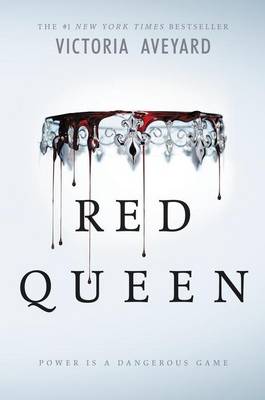Reviewed by ladygrey on
I enjoy the premise of the world. The actual world is fairly typical - all have and have not/elite privilege and extreme poverty. It was two dimensional, uninteresting and unimaginative. The deeper problem with it though was it kept me from being invested in the revolution. I remember reading one scene where they're all fired up about some plan or other and realizing, not only do I really not care, I almost want you to fail. This whole thing sounds like a bad idea. But it ignited thoughts about revolutions and how to do things properly and heroes and villains and causes that were interesting.
Mare was naive, which I didn't mind, though I normally do. It made sense for her to be naive and Aveyard wove entertaining pieces around her naiveté rather than using it to create stupid plot points. Mare was also judgmental, though, and that annoyed me! He's one of them and so he must be bad, despite that he's kind or thoughtful or brave; his actual character cannot sway her from remembering he's my enemy. And you know what, a person's character should count for more than that. Sometimes, I got the sense that Aveyard was trying to poke holes in her own world, to say things are not that black and white, and there's both good people and bad people on both sides. But then Mare would delve into this internal rant about how poor and oppressed her people are and how soft and cowardly and oblivious the others are and undermine the whole idea and also annoy me. Narratively, she didn't show balance in the characters on each side. There's a few good Silvers and no bad Reds - the Reds were flawed but still human, authentic characters and with three exceptions the Silvers were flat characteristics more than characters. And the whole thing with Cal where he tortures the rebel and from then on Mare won't let go that he's a soldier and a general and therefore he must enjoy killing people. And she can never forgive him and never let herself like him. It really annoyed me. Did she think her brothers survived years in the war by being bad soldiers? Because they were good at it, did it mean they enjoyed killing and torture? Did it make her like them any less? Cal was so clearly a good guy and for her to be so stupid about it was, again, really annoying. There wasn't any room with Mare, and because it's first person pov by extension the whole book, for a good person to make a bad choice; to like someone but disagree with them; or to watch a good person do a bad thing.
But there was plenty of room for the reverse, which was odd but appealing. I really enjoyed that I liked Maven even though I never trusted him. He was almost more interesting because he was kind and pretty much a good guy and clearly untrustworthy. Characters should be able to be that more - thoughtful and smart and gentle and also fabulous liars. Then after the coup he gets crushed into this one dimensional tyrant which was exceptionally less interesting.
And while the directness of the storytelling chafed, eventually I got used to it and it didn't bother me enough to keep me from wanting to finish the series. I may not have loved the book, but the fact that it got me to think this much about it works in its favor.
Reading updates
- Started reading
- 8 April, 2017: Finished reading
- 8 April, 2017: Reviewed
